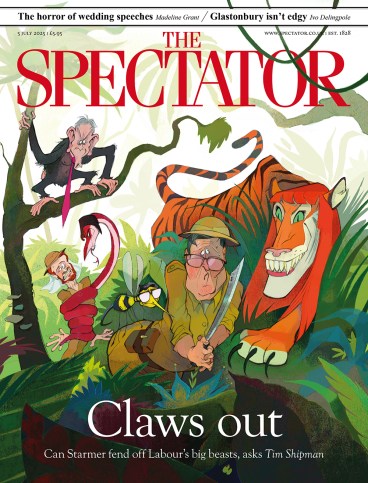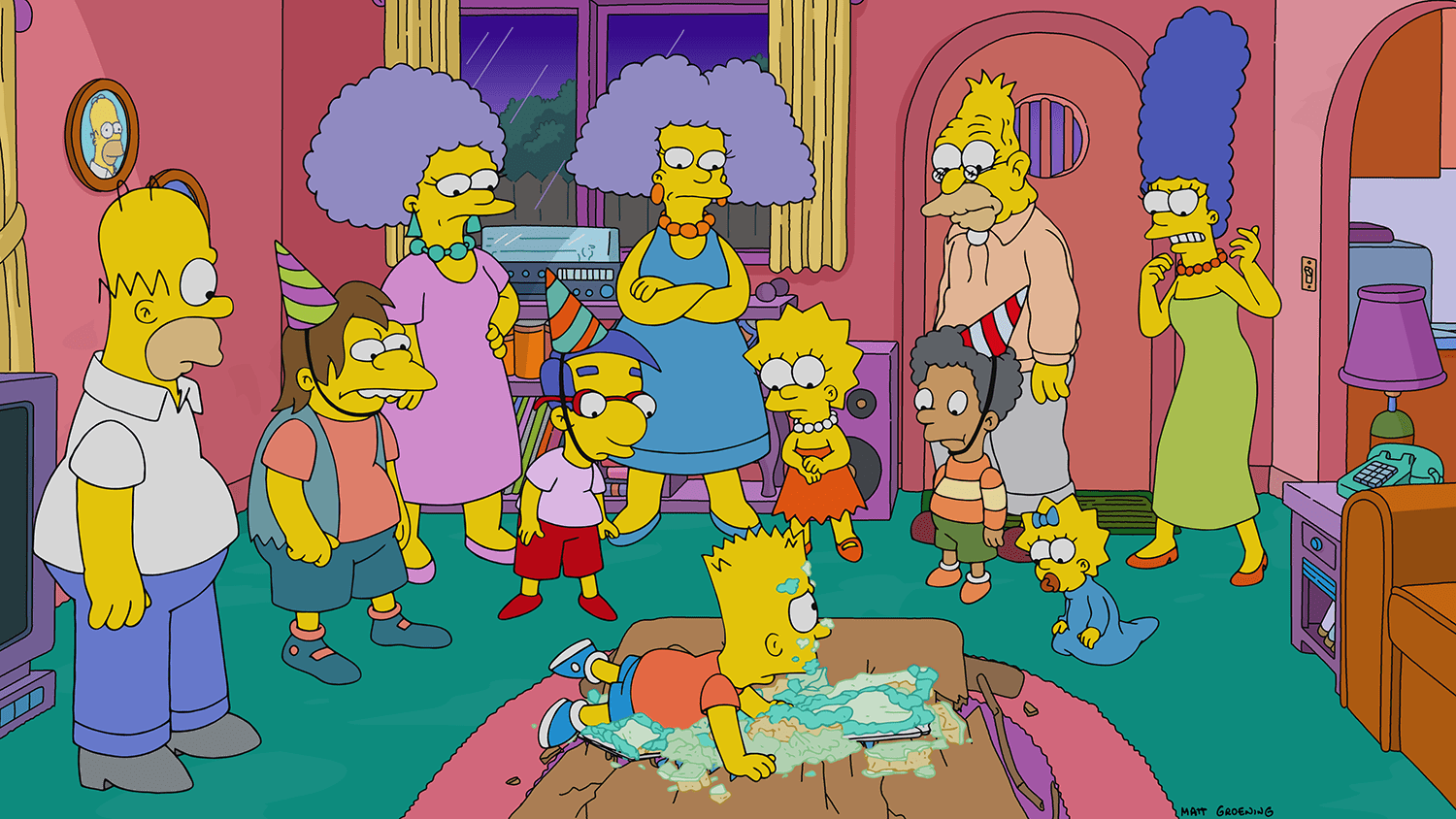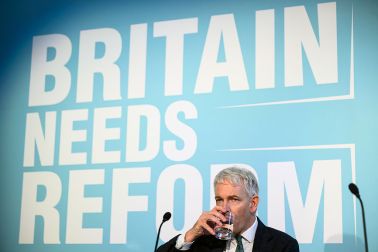
Marge Simpson is dead. But does anyone care? I’ve written loads of pieces over the years about the genius of The Simpsons – how extraordinarily prescient it is (most famously when, in 2000, it predicted a Trump presidency), how delightful the subplots are, how it works on so many levels – but I’m now beginning to suspect that all along it was a honeytrap designed to seduce you and your children into screen zombiedom.
Obviously I don’t want to push the ‘TV is bad for you’ argument too hard because I might be out of a job. But when I look at mothers in train carriages trying to distract their toddlers with iPhones or I see the way my bright and brilliant granddaughter gets sucked into the soulless void (and sly agenda-pushing) of garish, hyper-high-definition TV cartoons, I do worry what’s happening to their brains and I don’t think it’s good.
The Simpsons is, of course, perfectly well aware of this. The theme of the final episode of the 36th(!) season is the effects on Bart and his sister of exposure to the ultra-violent Itchy & Scratchy Show. There’s a typically neat joke where Marge pops out to do some shopping and says to Homer ‘…and don’t just prop them in front of the TV, eat Twinkies and take a nap’. Homer – you can tell this is a flashback because he still has some hair and is leafing through Partially Bald Monthly – only hears the part that begins after the word ‘don’t’.
Shortly afterwards, the kids burst in saying, ‘Homer, we’re bored. We need something to do.’ Homer puts on a new show about a sadistic mouse doing things so impossibly grotesque and disgusting to a cartoon cat that it would surely never have been permitted an airing on TV watched by children. But because we are watching it within the context of a family-friendly cartoon called The Simpsons, and because it’s ‘satire’, somehow it becomes OK.
Then we flash forward to the future. Bart and Lisa are no longer talking to one another. The Itchy & Scratchy Show has fallen out of favour – and with it, the only reason they had to engage in sibling bonding. Bart is now alone in his bedroom watching Screaming Friends, in which animated chainsaws dance round the room trying to saw their friends in half (‘Obviously the jokes are great but what I love is the storytelling’) while empowered feminist Lisa is chuckling knowingly at a show from the ‘golden age of television – 2015’ called Quirk Girl.
As The Simpsons is fond of telling us, ‘it’s funny because it’s true’. But notice the subliminal messaging: ‘Whatever your objections to TV, it’s maybe the one thing left capable of bringing us all together. And you know you couldn’t live without it because, just imagine how horrible it would be not to be able to congratulate yourself, spotting all those clever “meta” references we squeeze into every episode.’ I’m not saying The Simpsons isn’t genius. But I do think it might possibly be evil genius. Oh, and Marge isn’t really dead by the way. It was just another fantasy sequence, presumably bigged up by publicists with a view to keeping interest in the show alive.
Is The Simpsons a honeytrap designed to seduce you and your children into screen zombiedom?
After two episodes of Smoke I’m as yet undecided as to whether I’m going to last another seven. A lot of money and effort has clearly gone into the production – sinuous title song from Radiohead’s Thom Yorke, artsy camera angles, decent cast – but there’s something about the tone that
troubles me.
It borrows the structure of your typical serial-killer drama, with two dogged sleuths played by Taron Egerton and Jurnee Smollett. Only, the baddies they must try to capture before they strike again aren’t super-ingenious murderers with a thematic killing pattern but arsonists. Sure arsonists are bad, setting fire to places and potentially claiming lives, but as villains they don’t quite set the pulse racing. One of them – an overworked, socially awkward black guy who toils in a fast food chain – seems more pitiable than hateful, which makes it harder to root for his capture.
To compensate, the drama – adapted by Dennis Lehane from a podcast called Firebug – seems to be working overhard to beg us, ‘No wait! This is different! Just stick around and see where we’re going with this!’ I was tempted to give up after a fairly uninviting first episode in which nice, dependable Dave (Egerton) is trying to get his book published about being a fire investigator, and he’s teamed up with traumatised, but capable US marine-turned-police officer Michelle (Smollett). But then came the shock twist at the end of episode two, which cast a whole new light on everything. Still not sure I care enough about any of them to last to the end, though.
Also, do the flesh-melting-off-seared-limbs sequences really have to be so Itchy-&-Scratchy graphic?









Comments